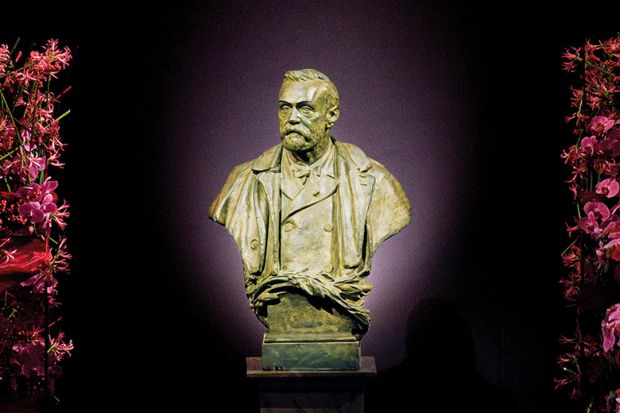“I don’t think almost any of the problems I see today would worry me, if we knew how to work together and how to think through problems together in a rational way that wove together fears and needs with a rational understanding of the world.”
So said Nobel laureate Saul Perlmutter at Times Higher Education’s World Academic Summit at the University of California, Berkeley in September last year (“You can’t order up a breakthrough”, Features, 12 January).
However, the Berkeley professor of physics is not convinced that the current methods of teaching and funding science are conducive to making the best of that problem-solving capacity, because researchers are not being afforded enough freedom. “You can’t order [technological breakthroughs] up; you have to let people try out ideas,” he said. “When you focus really smart people on exciting problems they invent all sorts of things.”
Regarding the research on the expansion of the universe that led to his sharing the Nobel Prize in Physics in 2011, Perlmutter’s hunch is that it would not be funded today. “It would have been very difficult [to justify] in a world in which you’re managing every last cent and making sure that you don’t waste any money.”
Coming from a Nobel laureate, these points have inevitably generated a lot of discussion. But do other members of that exalted group agree with Perlmutter’s take on the issues facing the world, science and universities? To find out, THE teamed up with the Lindau Nobel Laureate Meetings organisation to survey their views.
Fewer than 700 individuals have won a Nobel prize for science, medicine or economics since the first awards in 1901. Of those, only about 235 recipients are still living. But with the help of the German organisation that coordinates an annual conference of Nobel laureates, THE has been able to canvass the views of 50 of them.
Here we set out the sometimes surprising collective take of some of the world’s brightest and most celebrated minds on everything from the merits of the current funding system to the biggest threats facing humankind.
Funding
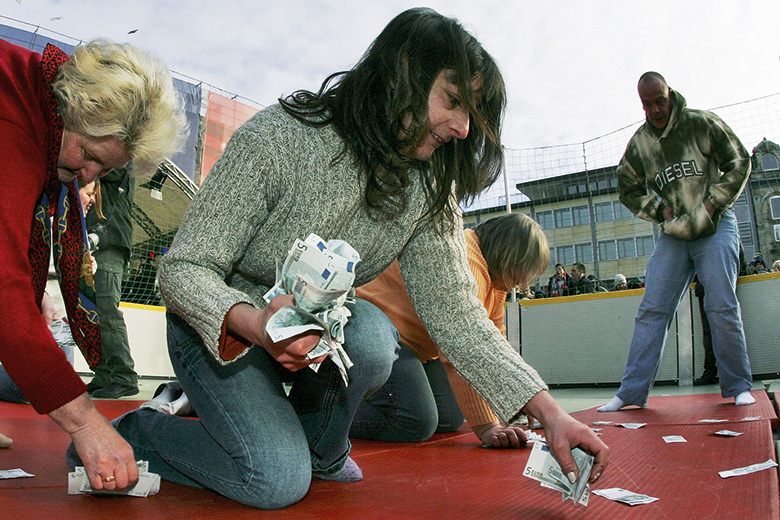
For more than a century, the Nobel prize has been science’s highest honour. While a handful of maverick geniuses have scooped the award during their thirties, most winners have been honoured later in life for research spanning decades, often backed by large teams and millions in funding.
But with competition for grants fiercer than ever, and with the pressure imposed on scientists by politicians and funders to generate results with foreseeable, real-world impact, do the respondents to our survey agree with Perlmutter that the kind of blue-sky research that tends to win Nobel prizes is no longer favoured? Specifically, do they think that their own prizewinning research could have been made in today’s funding environment?
Overall, they are fairly optimistic. Some 37 per cent say that they definitely could have produced their Nobel prizewinning research in the current funding system, while 47 per cent think that they “possibly” could have done.
“It is still the quality and originality of research that counts,” says one Swiss-based science laureate, while a US-based laureate remarks that “society was, and continues to be, very generous” towards research.
Another upbeat respondent, based in Germany, says that he would be confident of winning a European Research Council grant to pursue long-term projects.
Several Nobel prizewinners are critical of the rising bureaucracy around research and the trend towards funding applied science, yet they remain confident that they would have thrived in the current environment. “I believe my hard work and inspiration would overcome restrictions in funding,” says one Florida-based scientist.
“Even in the most mission-orientated research [environment], a place can be found for fundamental research,” adds a New York-based laureate.
Many respondents believe, however, that their Nobel win was largely unconnected to the issue of research funding, because the research was either self-funded or inexpensive. “I always worked on a shoestring,” observes one UK-based laureate. “I was a student, so did not need to find funds,” adds another.
Do you believe you could have made your Nobel-winning discovery in today’s funding environment?
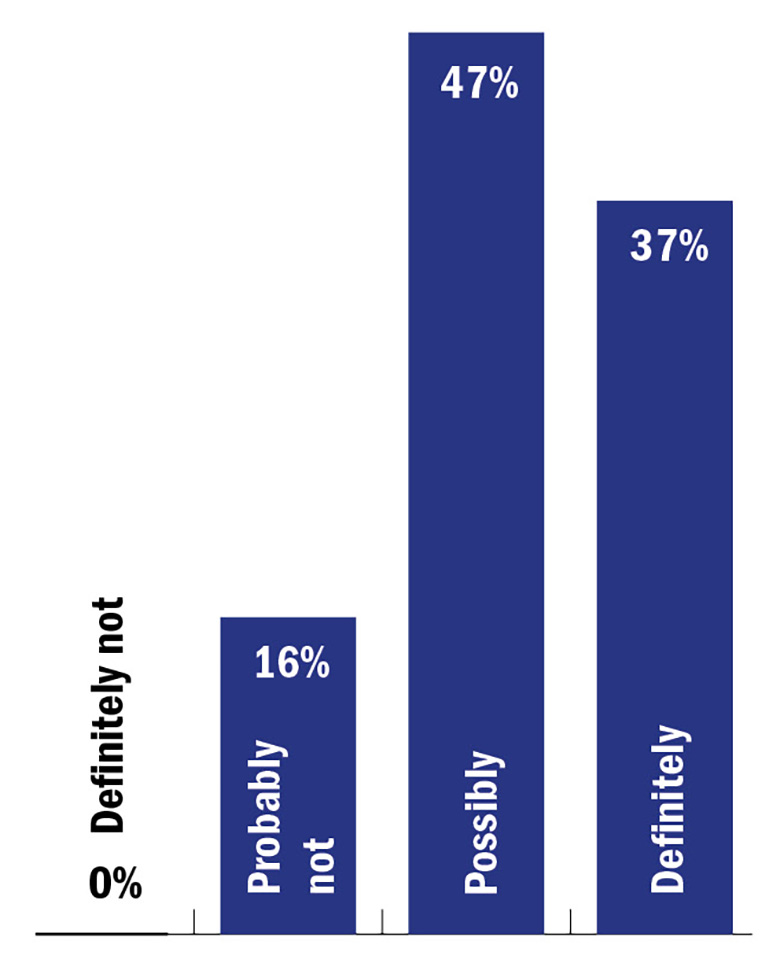
However, some 16 per cent of laureates believe that it would probably have been impossible for them to have conducted their prizewinning research in the modern era. Richard J. Roberts, an English biochemist who shared the Nobel Prize in Medicine in 1993 for work on gene splicing, doubts that his breakthrough would have been possible in modern mainstream academia.
Roberts did his PhD at the University of Sheffield before moving to Harvard University and then to the Cold Spring Harbor Laboratory on Long Island. It was his time at the last institute, which was then led by DNA pioneer James Watson, that was crucial to his breakthrough.
“Had I been in a normal academic position, I don’t think that what I was proposing to do would have been funded,” says Roberts, who is now based at New England Biolabs, a private research company. “What I was asking was a very basic, simple question that people thought they knew the answer to, but they did not,” he adds.
Roberts worries that scientists are wasting an “unbelievable amount of time” writing grant proposals, which are mostly unsuccessful. Those who do receive funding also need the flexibility and time to pursue findings that, at first glance, appear unsuccessful.
“Good scientists know how to write grant funding applications, but what you end up researching is the work not included in your grant,” he explains. “When experiments fail, you have to ask why – you have either messed up or nature is trying to tell you something.”
Peter Agre, the US molecular biologist who shared the 2003 Nobel Prize in Chemistry, agrees that the high attrition rate in grant funding may be deterring some from pursuing a research career.
“No one would go into business and work as hard as they can knowing that there was only a 5 per cent chance that they would get funding,” says Agre, who is director of the Johns Hopkins Malaria Institute at the Baltimore university’s Bloomberg School of Public Health.
That said, a level of competition between researchers and a certain level of precarity is healthy, Agre adds.
“Science is not the French civil service – it should not have complete [job] security built into it,” he says.
Other Nobel prizewinners agree with Roberts’ take on today’s funding climate. “Nowadays, there is a lack of long-term positions and long-term funding for risky projects that could lead to a Nobel prize,” explains one laureate based
in Germany. A New Jersey-based laureate concurs, saying that “dwindling support for basic research [means] less willingness to fund risky projects”.
“Brexit adds additional uncertainty to the future funding environment,” adds a UK laureate.
One US laureate’s prizewinning project was a “sideline, rather than my main project”. But the laureate is worried that such labours of love are discouraged in the modern era. “Current research evaluation is much too short-sighted, thereby guiding youths to pursue fashionable topics. [This] hampers the healthy growth of academia.”
International mobility
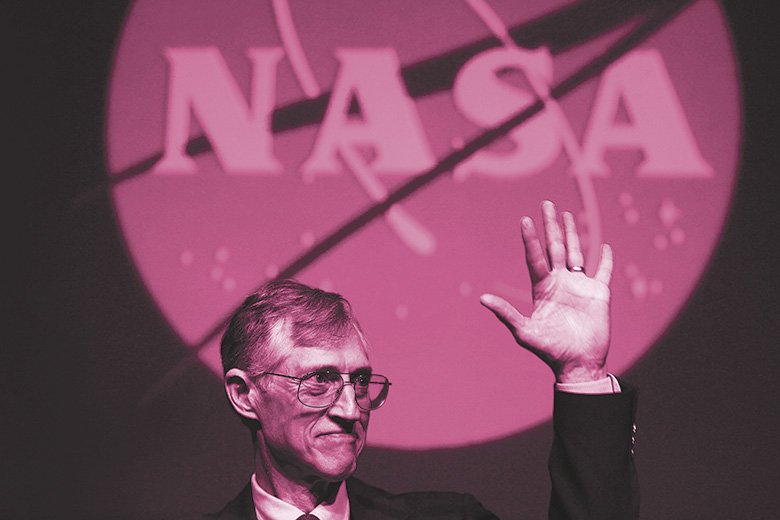
Internationalism has taken something of a hit in the past year or so. The rise of an anti-immigration populism on both sides of the Atlantic threatens to deal a blow to scientists’ international mobility – if not by design then at least as a side-effect.
However, at least one Western leader is welcoming foreign researchers. In June, Emmanuel Macron, the French president, offered an invitation to US scientists looking for a new home in the wake of Donald Trump’s announcement that the US would pull out of the Paris climate change accord. Macron called on “all scientists, engineers, entrepreneurs, responsible citizens who were disappointed by the decision of the President of the United States” to “come and work here, with us”.
But are such headline-grabbing initiatives likely to produce significant scientific breakthroughs? Is the international mobility of researchers really central to pushing the boundaries of knowledge?
Nobel prizewinners are emphatic in their insistence that it is. Some 43 per cent rate international mobility as “very important” to research, while 38 per cent say that it is “crucial”. One in five says that it is “reasonably important”, and none feels that it is unimportant.
The refrains of “there are no boundaries in science” and “research is a joint, worldwide effort” are frequently voiced. “Nobody can tell where great ideas will arise, or who will have them,” explains John Mather, a senior scientist in cosmology at Nasa’s Goddard Space Flight Center in Maryland, whose work on satellites earned him a share of the Nobel Prize in Physics in 2006. “But we do know that people migrate to organisations that look promising to them and that will support their research.”
Another US laureate adds that “a large fraction of advances in forefront research is carried out by a very small fraction of people. In that context, it’s important to draw on a large pool.”
Pulling together the world’s top talent into a single research team is often responsible for producing the paradigm shifts that take science to the next level, explains Peter Agre, who will speak at this year’s THE World Academic Summit, held at King’s College London between 3 and 5 September.
“Science is a bit like the movie business,” Agre explains. “It is often only the blockbuster release that truly moves the status of the industry forward.”
How important to research is international mobility?
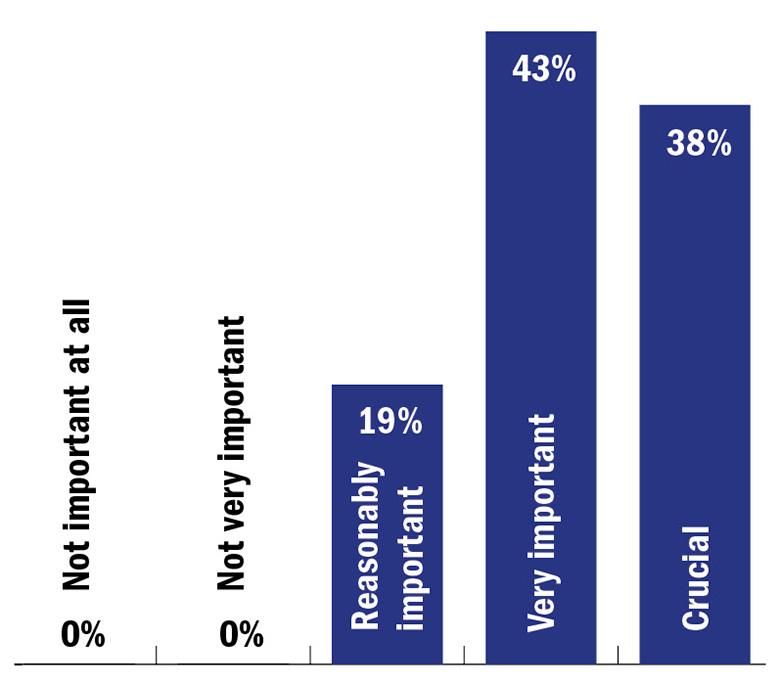
Meanwhile, a Chicago-based laureate says that the importance of international mobility also relates to students: “Our best students come from abroad.”
One California-based laureate does suggest that the emergence of Skype, FaceTime and other videoconferencing services mean that international travel is no longer as important as it was for previous generations of researchers. However, many more respondents regard remote conferencing as a poor substitute for face-to-face meetings.
“It is only by sharing ideas from great minds and institutions around the world – best done through strong personal relationships between researchers, even in the digital age – that you can hope to make the fastest progress on advancing knowledge,” says Brian Schmidt, an astrophysicist who shared the 2011 physics prize with Perlmutter and Johns Hopkins University’s Adam Riess, and who is now vice-chancellor of the Australian National University.
Meanwhile, a Japanese laureate notes that “researchers are often inspired by exposure to different cultures”. So “international collaboration facilitates otherwise difficult co-creation of new scientific knowledge”.
A US-based laureate makes a similar point: “Ideas come from all over, but it is often the different styles of learning and research that one finds in different countries and institutions [that] result in different perspectives – the combination of which is needed to successfully address hard problems.”
Meanwhile, for one laureate, international mobility is a personal compulsion.
“I have lived for more than 15 years in South Africa, the UK, Israel and the US – I cannot spend more than a few weeks in one place,” the researcher explains. “I am not sure that this is good, but it is very exciting.”
Populism and political polarisation

Donald Trump’s dismissal of climate change as a “hoax” is widely seen as symptomatic of a post-truth era, where science and facts can be dismissed in favour of ill-founded partisan views. And former UK education secretary Michael Gove’s remark during the Brexit campaign that the British public had had enough of experts (in this case, economic experts) has rung many alarm bells in British universities.
So does the rise of populism and political polarisation endanger modern science? Our Nobel laureates think so. Some 40 per cent call these twin phenomena a “grave threat” to scientific progress, while 30 per cent say that they are a “serious threat”. Just 5 per cent (two respondents) are entirely unconcerned, while 25 per cent perceive a “moderate threat”.
“Today, facts seem to be questioned by many people who prefer to believe rumours rather than well-established scientific facts,” says Jean-Pierre Sauvage, who shared the Nobel Prize in Chemistry in 2016. “Education is the only answer.”
Meanwhile, one US-based laureate notes that “it is a disaster when people start believing things that are false and, even worse, when governments induce them to believe facts that are evidently wrong and ignore all evidence-based, scientifically proven data”.
Another laureate notes that “any measures that inhibit the sharing of ideas are detrimental to science”, while a Japan-based laureate calls on the scientific community to “unite worldwide…against any unacceptable movement that denies definite, natural truth”.
How great a threat to scientific progress is populism and political polarisation around the world?
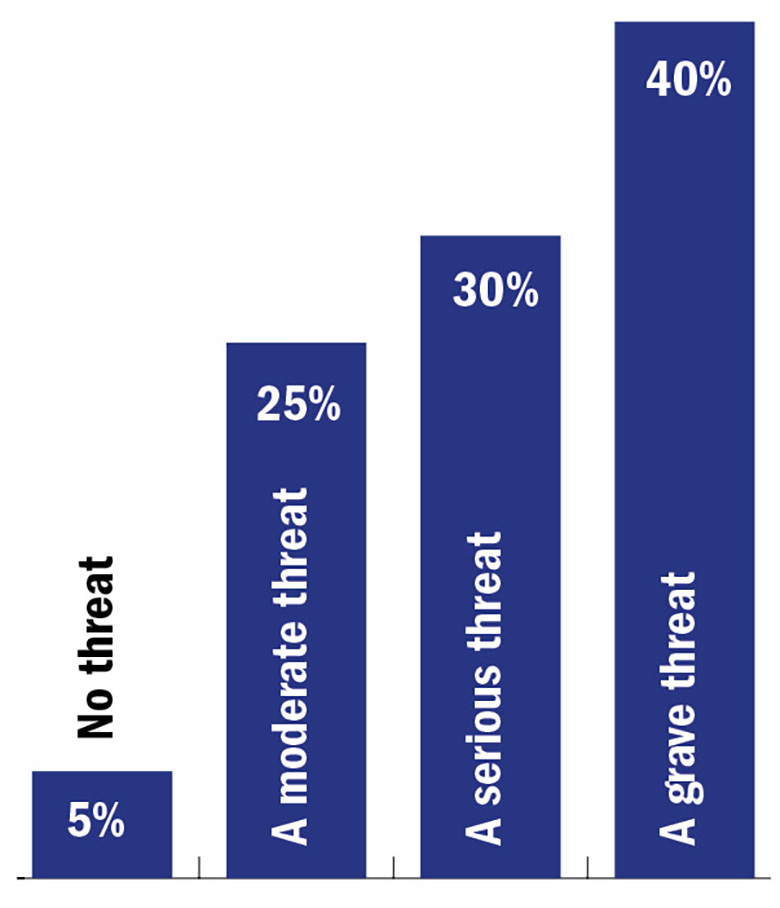
The “intellectual arrogance” of some political leaders is criticised by several laureates, although only one directly refers to Trump. But depicting Trump-style doubts over climate change as wilfully ignorant and misguided is, according to Nasa’s Mather, a “truly bad strategy”.
“The results indicating climate change are extremely clear, but what is less clear is what to do about it,” he says. “People are beginning to understand that simply complaining about other people is not working.” Arguing for more investment in energy-efficient technology would be more productive, Mather believes.
Several laureates do not see populism as an immediate threat to scientific progress, but they express concern about where it may lead. One New York-based researcher explains that “populism is not a danger to science as long as it does not develop into nationalism”.
For one US-based laureate, it is not populism but “demagoguery”, defined as “an appeal to the fears of the people”, that would “result in reducing funds for research in favour of either tax cuts or attention to more ‘immediate’ problems’. If [that] results in anti-intellectualism, it represents real danger.”
Some respondents, however, are more hopeful.
“Despite a large and vocal minority, it seems that over the course of my lifetime the world has become increasingly aware of the role of science and technology in improving human welfare,” one notes. “The slope remains positive.”
University challenges
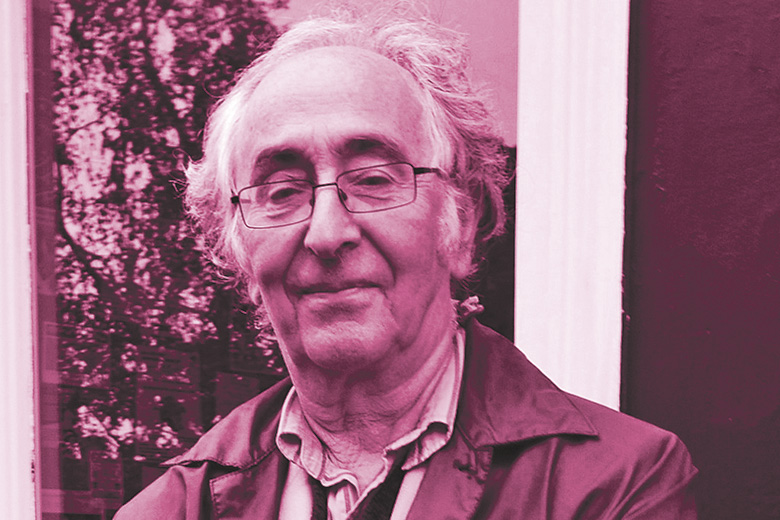
When asked about the biggest challenges facing universities, our Nobel laureates repeatedly come back with one issue: money.
Two in five mention either the affordability of tuition fees or the underfunding of universities.
“Tuition [fees at] private universities in the US are still skyrocketing, and support for public universities in many states is declining,” explains one respondent, while another cites the “growing inequality between public universities and wealthy, tax-exempt private institutions”.
Another US-based laureate explains that “students [increasingly] have to have very rich parents…At the top private universities, the number of students with parents in the top 1 per cent [of the income scale] is equal to the number of students with parents in the bottom 50 per cent of income.”
What are the biggest challenges facing universities in your country and globally?
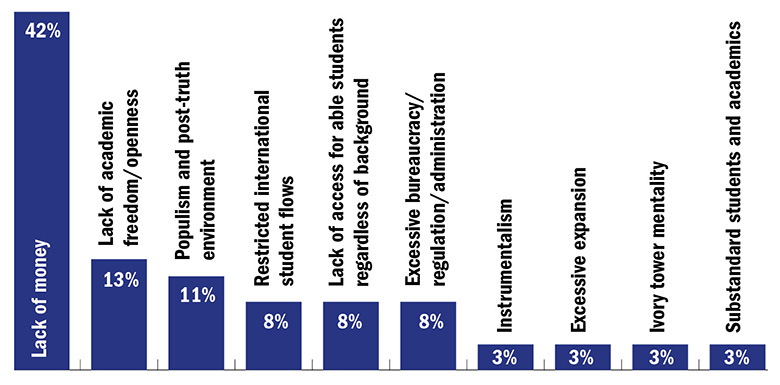
Note: some respondents listed more than one threat
For Roberts, “the biggest threat to universities is, sadly, politicians who do not listen to science or education”. He cites the introduction of “excessive bureaucracy trying to measure [scientific] outputs”, as he dismisses the so-called impact agenda as “trash” and “appalling”.
“Why do bureaucrats think this is a good thing to do, and why have we let them get away with it?” he asks.
Other respondents bemoan administrators’ growing power, while one laureate based in Southeast Asia complains that “governments [are] seeking more control over the behaviour of academics, thus making academic life less attractive and discouraging long-term projects”.
Universities should be “more open to heretics such as myself – and then science will progress faster”, says Brian Josephson, who won the Nobel Prize in Physics in 1973 at the age of 33 but whose later research at the University of Cambridge on parapsychology has attracted criticism.
A handful of respondents also hit out at what they see as the erosion of free speech on campus. One California-based laureate condemns “the suppression of free exchange [of views] by those [who] riot in response to alternative views”.
Artificial intelligence

The press has been full of articles recently heralding the arrival of the age of artificial intelligence and worrying about what that means for workers. With computers already better chess players than human grandmasters, are researchers set to be eclipsed by machines? Is it only a matter of time before an intelligent robot (or, perhaps, its programmer) wins a Nobel prize?
Not according to our respondents. Asked whether AI and robotics will eventually result in the need for fewer human researchers, almost three-quarters reply either “not likely” (50 per cent) or “definitely not” (24 per cent). Only 24 per cent say that such a scenario is “possible”, with just a single respondent stating that it will definitely happen.
“Artificial intelligence has shown little ability to be creative and, most importantly, to ask new questions,” says one California-based laureate. A France-based respondent adds: “Only human intelligence and reflection result in novel and original concepts.” And a US-based science laureate states that “robots have no imagination or vision”.
“Putting a million robots together, do you think that they will ever compose [something like] Mozart’s Don Giovanni or Così fan tutte , or Schubert’s Die schöne Müllerin or Die Winterreise ?” asks a laureate who is a classical music buff.
Will AI and robotics eventually result in a need for fewer human researchers?
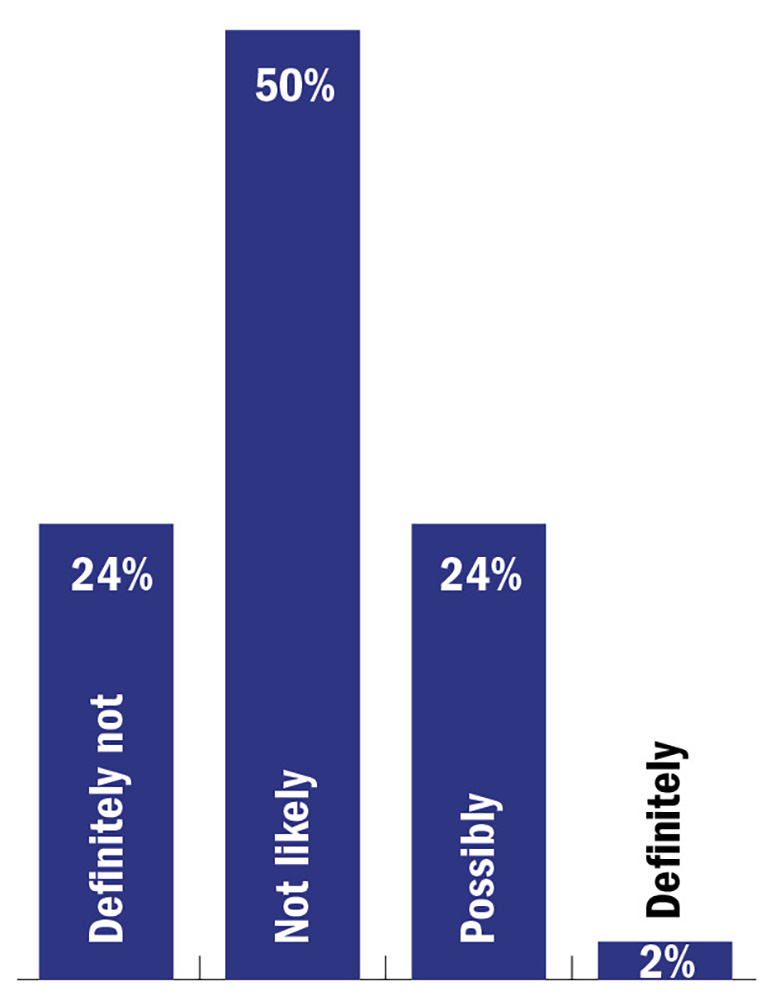
But many respondents believe that robots could play an important role in laboratory work. “Robots could alleviate the drudge work of trainees in experimental work,” says one US-based laureate, while another in the biomedical field predicts that machines could take care of “rote functions, such as cloning, animal care [and] equipment maintenance”, which would allow small groups of researchers to work more efficiently.
Some laureates predict that AI could even create a need for even more human researchers.
“Each problem solved uncovers new ones, no matter whether solved by humans or robots,” says a Nobel laureate in Germany, while a US respondent explains that more human-machine partnerships would open up so many fruitful new avenues of research that “probably more humans will be involved”.
The ANU’s Schmidt says that it is “likely that researchers will always be able to augment their skills with AI and robotics, rather than be replaced [by them]”. But he adds, “Of course, if we make a form of advanced intelligence, we could let it do all the work, and we could just sit back and enjoy the beach – or being overrun by our new self-created masters.”
Biggest threat to mankind
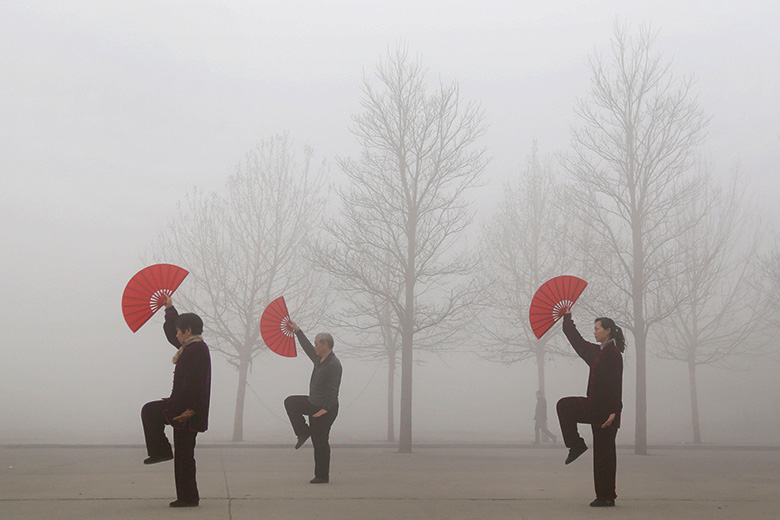
Two of our respondents list artificial intelligence as the biggest threat to humanity. However, what worries far more of the Nobel laureates surveyed is the environment, with one in three citing issues such as global warming and overpopulation.
The number is particularly striking given the US’ withdrawal from the Paris climate change accord and Donald Trump’s appointment of climate change sceptic Scott Pruitt to head the US Environmental Protection Agency. While Trump may regard climate change as a Chinese hoax to hamstring US manufacturing, it is clear that Nobel laureates beg to differ.
“Climate change [and providing] sufficient food and fresh water for the growing global population…are serious problems facing humankind,” says one US laureate. “Science is needed to address these problems and also to educate the public to create the political will to solve these problems.”
For Roberts, feeding the world’s growing population is the biggest problem facing humanity. And he worries about the opposition in many quarters to the use of genetically modified plants and animals to meet this challenge, despite the scientific consensus over its safety.
“The blatant disregard for scientific opinion is going to lead to a worldwide crisis,” predicts Roberts, who cites a letter signed by 124 Nobel laureates in June calling on Greenpeace and other non-governmental organisations to drop their campaigns against certain types of biotechnology-enhanced crops.
“To tell people that they cannot eat or grow a food type that might stop them from starving is plain disgusting,” says Roberts, who adds that climate change will make the need for genetically modified organisms more pressing than ever.
What is the biggest threat to humankind?
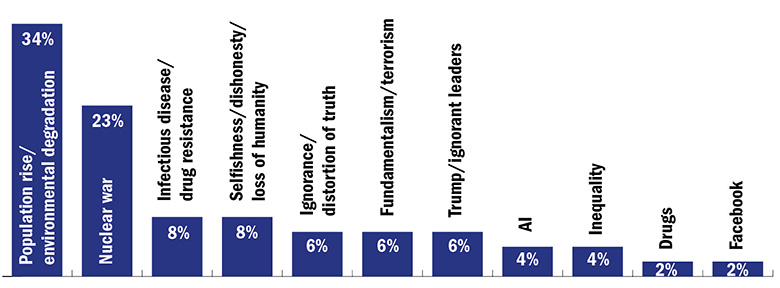
Note: some respondents listed more than one threat
Meanwhile, Nasa’s Mather notes that “humans are very busy with the greatest climate change experiment since the ice ages, but science has the potential to completely transform the system of economic rewards that encourage the use of fossil fuel. In other words, if renewable energy becomes cheaper than fossil fuels, people will switch over very quickly.”
With North Korean missile tests straining US-China relations and the fallout of Russia’s interference in the US elections ratcheting up tensions already stoked by the country’s actions in Ukraine, Crimea and Syria, it is hardly surprising that nuclear war is the second most common threat to humanity cited by survey respondents.
Among the 23 per cent of respondents to mention it (some respondents cited more than one threat) is a laureate from Israel who complains of “warmonger dictators”. A respondent from Germany singles out “populist regimes in possession of nuclear weapons”, while Mather is more concerned about nuclear weapons in the hands of terrorist groups.
Other threats to humankind cited by respondents include medical fears such as global pandemics and antibiotic resistance (8 per cent), fundamentalism and terrorism (6 per cent) and a loss of selflessness, honesty or a “humanist perspective as we rush into the age of the internet and its seductions” (8 per cent). And two respondents specifically mention Trump – “I don’t think science can do much about him,” one adds.
Several laureates, however, are optimistic that a worldwide apocalyptic scenario is unlikely.
“The human species is so successful in making the world a better place,” says one. Another concedes that there are “several low probability but quite existential threats to humanity, including pandemics, nuclear war and artificial intelligence”.
But science, the laureate believes, could offer a way out: “The ultimate insurance policy is to make humanity a multiplanet species. And science obviously has a big role to play in that.”
Peter Agre on: Trump the villain, Beckham the PM and getting too geeked out

Donald Trump often brags about the size of his support base, but it is unlikely to include many Nobel laureates, our survey suggests.
Numerous Nobel prizewinners spoke about their disdain for the billionaire property tycoon now occupying the White House, citing him as a direct threat to scientific progress. However, few took issue with him as strongly as Peter Agre, the malaria researcher at Baltimore’s Johns Hopkins University who won the Nobel Prize in Chemistry in 2003 for the discovery of water channels in cell membranes.
“Trump could play a villain in a Batman movie – everything he does is wicked or selfish,” Agre tells Times Higher Education, describing the US president as “extraordinarily uninformed and bad-natured”.
Agre is particularly worried by how Trump “flaunts his ignorance” to appeal to a group of Americans who are happy to dismiss the opinions of scientists.
Those who endorse Trump’s populist dismissal of climate change as a “hoax”, or expert scientific opinion more generally, are “threatened by educated people”, believes Agre. “We are usually from wealthy backgrounds, we have investments, tidy homes and read books – they do not respect that,” he says.
Science has not done as much as it could to bridge this growing cultural divide between the public and the scientific community, believes Agre. Many scientists are guilty of revelling in a geeky persona that many in the general public feel comfortable dismissing.
“When people can pick out scientists from a distance, we are maybe not projecting the best possible image,” says Agre, joking that “maybe we shouldn’t look like Doc Brown from Back to the Future”.
He is in awe of the “phenomenal work” being undertaken at scientific labs throughout the world, but intellect alone does not make a great scientist, he contends.
“I do not feel that I had incredible scientific talent when I was a student – I was just as interested in journalism or politics at the time,” he explains. “Any success that I achieved is something of an astonishing miracle.”
Having completed a chemistry degree at Augsburg College in Minneapolis, Agre enrolled at Johns Hopkins’ medical school, which exempted him from the Vietnam War draft. Although the laboratory that he subsequently joined was “very good”, it lacked any famous names; his immediate supervisor, Vann Bennett, had been his classmate at medical school. However, Agre was allowed to follow his interests as a postdoctoral fellow, and his work on cholera paved the way for his Nobel prizewinning research, he explains.
“If you just pay attention to what is being hyped in the scientific media, you can miss out,” Agre says, adding that his experience shows that “fantastic science is often emerging from not-so-famous places”.
But any young scientists dreaming of winning a Nobel prize should put such thoughts out of their mind, Agre advises.
“If you have a graduate student trying to complete their PhD and change the world at the same time, they’ll probably fail on both counts,” he says.
While Agre may worry about the villains populating world politics, he is also hopeful that some equally heroic figures will arrive to begin the fightback. Yet his suggestion for who the UK’s next progressive political leader should be is an unlikely one. “I once met David Beckham in an airport lounge in New Zealand. It was very late, but he kindly wrote a note for one of my daughters, who is a fan – he was an absolute gentleman.
“Maybe a celebrity candidate could actually do some good.”
Register to continue
Why register?
- Registration is free and only takes a moment
- Once registered, you can read 3 articles a month
- Sign up for our newsletter
Subscribe
Or subscribe for unlimited access to:
- Unlimited access to news, views, insights & reviews
- Digital editions
- Digital access to THE’s university and college rankings analysis
Already registered or a current subscriber? Login
